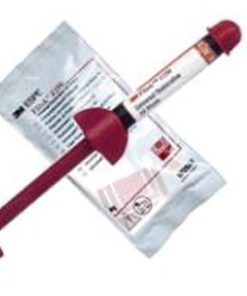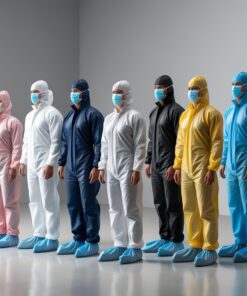Disposable body bags – 800×2200×160 micron child
R233.00 Ex VAT
MedQ extends a warm welcome as your premier source for superior hospital gloves and vital medical supplies. With expertise in providing a comprehensive selection of hospital gloves, we address the distinct needs of healthcare professionals and institutions. Our unwavering commitment to excellence and safety ensures the supply of gloves that offer optimal protection for both medical personnel and patients.
MedQ welcomes you to explore our world of premium hospital gloves and medical supplies. We’re experts in providing an extensive range of hospital gloves to meet the diverse needs of healthcare professionals and institutions. Our unwavering commitment to excellence and safety ensures that you’ll receive gloves of unparalleled quality, designed to protect both medical staff and patients.
Hospital body bags, also known as cadaver bags or mortuary bags, are specialized bags designed for the transportation, storage, and handling of deceased individuals. Here is a list of different types of hospital body bags along with their uses:
Types of Hospital Body Bags
- Standard Body Bags
- Material: Typically made of heavy-duty plastic or vinyl.
- Features: Waterproof, with zipper closure.
- Uses: General use in hospitals, morgues, and funeral homes for storing and transporting deceased individuals.
- Heavy-Duty Body Bags
- Material: Extra-thick plastic or vinyl, sometimes reinforced with nylon.
- Features: Increased durability, puncture-resistant, and leak-proof.
- Uses: Suitable for disaster scenarios, handling decomposed bodies, or situations where the body might be in a fragile state.
- Biodegradable Body Bags
- Material: Made from eco-friendly materials that degrade over time.
- Features: Environmentally friendly, decomposes naturally.
- Uses: Preferred for green burials or eco-conscious facilities.
- Pediatric Body Bags
- Material: Plastic or vinyl, similar to standard bags but smaller in size.
- Features: Sized appropriately for infants and children.
- Uses: Designed for the transportation and storage of deceased infants and children.
- Infectious Disease Body Bags
- Material: Heavy-duty, multi-layered plastic with antimicrobial properties.
- Features: Often include a viewing window and are labeled with biohazard symbols.
- Uses: Used for bodies of individuals who had contagious diseases to prevent the spread of infection.
- Disaster Body Bags
- Material: Durable, heavy-duty plastic or vinyl.
- Features: Large capacity, reinforced handles, often comes with identification tags.
- Uses: Used in mass casualty events, disasters, or pandemics.
- Human Remains Pouches
- Material: Thick, puncture-resistant plastic or vinyl.
- Features: Zipper closure, handles for easy carrying.
- Uses: Often used in military settings or in situations where bodies need to be transported over long distances.
Uses of Hospital Body Bags
- Transportation
- Securely transporting deceased individuals from the place of death to a morgue, funeral home, or burial site.
- Storage
- Temporarily storing bodies in morgues or refrigeration units to preserve them until final arrangements are made.
- Infectious Control
- Containing bodies of individuals who died from infectious diseases to prevent contamination and spread of pathogens.
- Disaster Response
- Managing large numbers of fatalities in mass casualty events, ensuring each body is handled respectfully and identified correctly.
- Forensic Investigations
- Used in crime scene investigations to transport bodies to forensic labs for autopsies and examinations.
- Military Use
- Handling deceased soldiers in combat zones, ensuring respectful and secure transportation back to their home country.
Conclusion
Hospital body bags are crucial in ensuring the respectful and hygienic handling of deceased individuals. Different types of body bags are tailored to specific needs, from standard use in hospitals to specialized bags for infectious diseases and disaster scenarios. Their design and material composition are chosen to meet the demands of their intended use, ensuring durability, leak resistance, and, in some cases, environmental sustainability.
Related products
Coveralls
Coveralls
Coveralls
Coveralls
Coveralls
Coveralls
Coveralls
Coveralls














